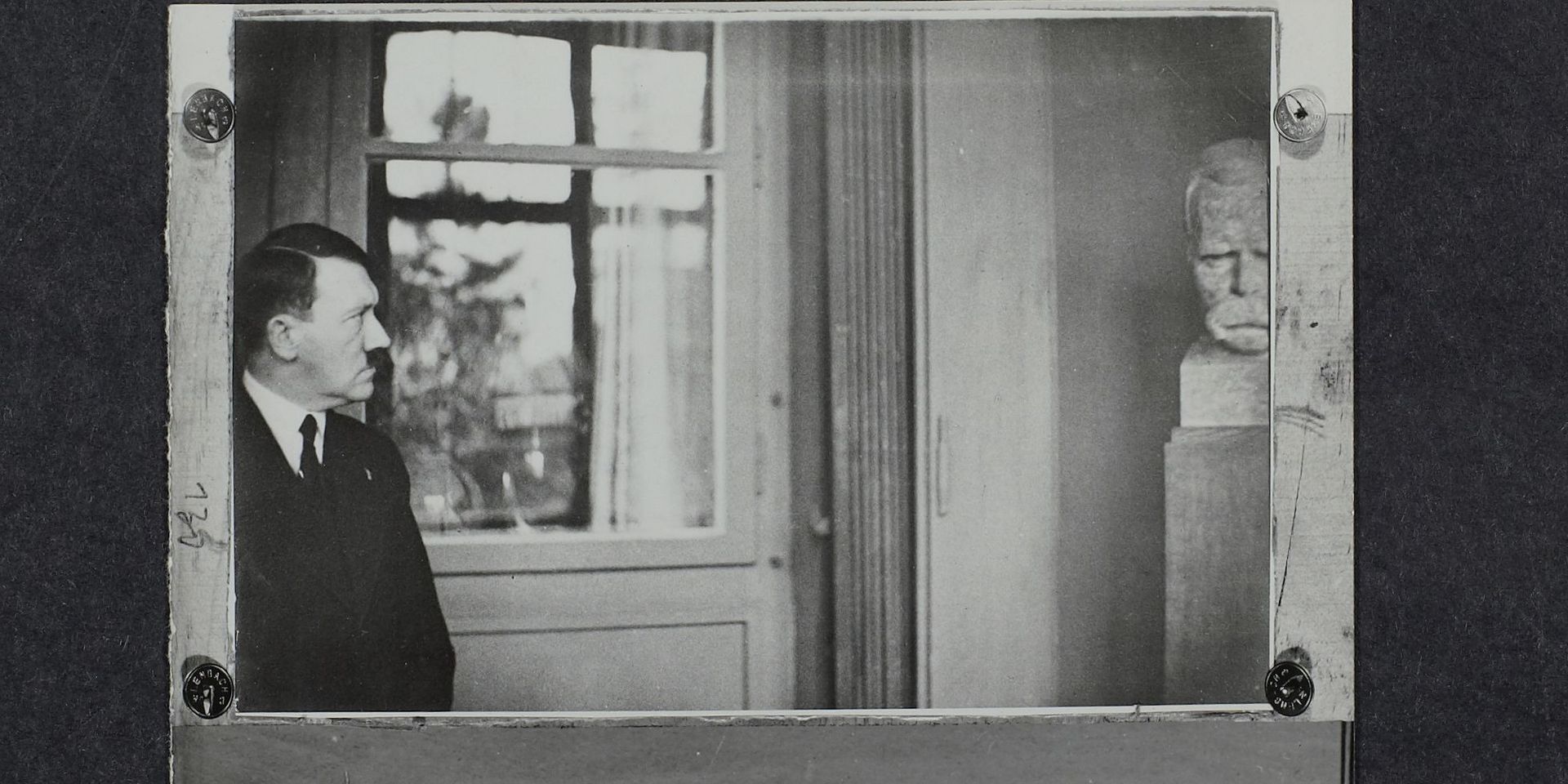Projects of the Klassik Stiftung Weimar are funded by the European Regional Development Fund (ERDF) and the Free State of Thuringia, represented by the State Chancellery of Thuringia, Department of Culture and the Arts.

Nietzsche in the National Socialism
A small exhibition on a major topic
What does Friedrich Nietzsche have to do with National Socialism? How was his legacy treated during the years of Nazi rule? What was it about Nietzsche that fascinated both fascists and anti-fascists alike? These are the questions addressed in a small cabinet exhibition at the Nietzsche-Archiv.
Nietzsche had always felt that he had “come before his time”. He cautioned free spirits to keep their distance from the powerful. But for the posthumous politicisation of his works, Nietzsche came at exactly the right time. His philosophy was ideologically adopted and reinterpreted. Numerous members of the Nazi Party were among his admirers. Philosophers loyal to the Nazi regime and ideologically aligned journalists were as involved in the antidemocratic politicisation of Nietzsche as was his sister Elisabeth Förster-Nietzsche, the founder of the Nietzsche-Archiv. The Nazis seized on Nietzsche’s dream of “Übermenschen” (supermen) to promote their self-proclaimed vision of Germans as “Herrenmenschen” (members of the master race). The Nazis transformed Nietzsche, the European philosopher, into a “German prophet”; the man who had opposed anti-Semitism suddenly became a pioneer of racist doctrine; the former critic of National Socialism was recast as the “herald of German greatness”. At the same time, exiled scholars voiced criticism of the misuse of Nietzsche’s legacy, such as the Jewish cosmopolite Oscar Levy and the existential philosopher Karl Jaspers.
The presentation highlights the contradictory appropriations of Nietzsche’s legacy during the years of National Socialism and asks to what extent Nietzsche himself might have been responsible for this fatal rupture in his literary reception.
Publication Nietzsche in National Socialism
Your visit
Opening hours
Address
Tickets
Free entry
plus museum admission
- Services for the hearing impaired
- Offers for the visually impaired
- Offers in the Weimar+ app
- Offers in simple language
- Guided tours for blind and visually impaired groups of visitors possible
- Rollator access possible
- ModernismCard
- MuseumCard

